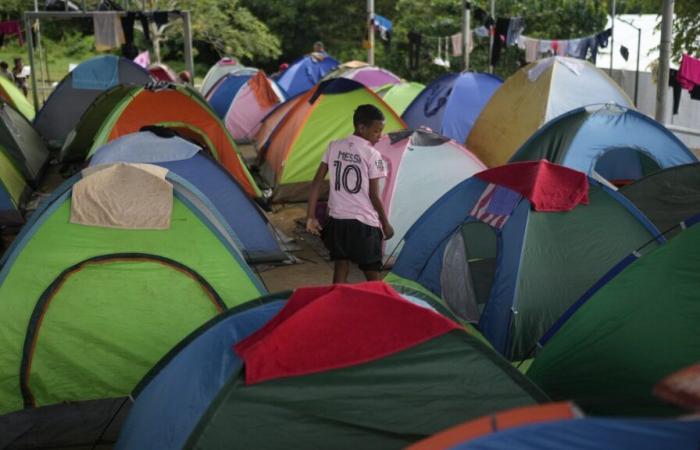PANAMA CITY (AP) — The number of migrants crossing the dangerous Darien jungle, on the border between Panama and Colombia, fell by nearly half — 42% — in a single year. Foreigners who crossed that area, mainly destined for the United States, went from more than half a million in 2023 to just over 300,000 in 2024, according to official figures released by Panama on Thursday.
At the end of 2024, a total of 302,203 migrants crossed the Darién Gap, while the previous year saw a record number of 520,085 migrants, according to Thursday’s report from the National Immigration Service of Panama.
Of them, 69.5% were of Venezuelan nationality, followed by 5.8% of Colombians, 5.5% of Ecuadorians, 4.1% of Chinese and 3.9% of Haitians.
Despite the decrease in the number of migrants, the passage through the Darién continues to be one of the most dangerous routes and in 2024 the death of 55 migrants was reported, according to Panamanian authorities.
In relation to the reduction of irregular migration, the president of Panama, José Raúl Mulino, stated on Thursday during his first speech to the Nation, at the end of six months of his government, that 38 repatriation flights have been carried out, deporting one total of 1,548 people.
“The routes were controlled and today we are working every day so that this illegal migration does not reach the rest of the country,” Mulino added.
For his part, Commissioner Jorge Gobea, director of the National Border Service (Senafront), pointed out to The Associated Press that by 2025 it is planned to increase the number of operations, supported by advanced technology, such as drones and video surveillance, to improve control of the migration and reinforce security in border areas.
In addition, the Smart Borders project seeks to optimize communication and the exchange of information between the different border posts, Gobea said. The Senafront bases on the border will have internet access and surveillance cameras, allowing what is happening on the ground to be monitored from the city.
“We have a strategic project called Smart Borders, which is already being implemented. It seeks to create a communications architecture with a significant effort to place sensors on the border and thus be able to monitor more effectively,” explained the director of Senafront.
Regarding the physical measures implemented to control the passage of migrants, the commissioner highlighted the fences with barbed wire in the Darién jungle, an action taken in July 2024 when the Mulino government took office, to cover at least 80 meters of the jungle in an attempt to block the passage of migrants through the jungle and keep them on a single controlled route.
Gobea also explained that it will increase the number of fences installed with at least two additional sleeves (lines of fences) parallel to those already in place to make it more difficult to cut the barrier. “The intention is that, if there is only one fence, migrants can try to cut it, but when two or three are placed, the effort will no longer be worth it,” he commented.
In addition, Senafront plans to reinforce the number of troops on the border, given the almost 300 border police officers deployed. In January, 200 more officers will graduate and will be distributed in Darién and Chiriquí, increasing territorial control capacity through more patrols.






